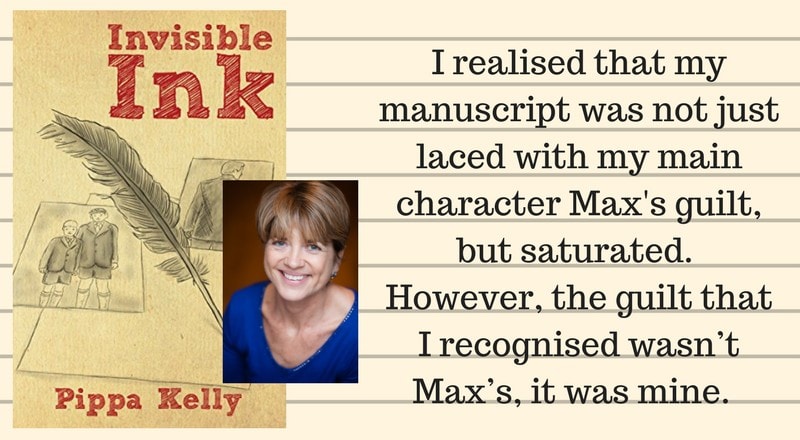Before signing off the final proofs of my debut novel I read the manuscript for the first time in over a year and realised that it was not just laced, but saturated, with guilt.
Invisible Ink tells the story of Max Rivers, a young London lawyer who seems to have it all: a beautiful girlfriend, a burgeoning career, an enviable address – but he harbours a secret. When he and his younger brother Peter were schoolboys, Peter went missing, for which Max blames himself. So it’s fair to say that the novel is about guilt: Max’s guilt, which he tries (and ultimately fails) to suppress.
However, the guilt that I recognised in my writing wasn’t Max’s, it was mine.
I wrote Invisible Ink during the most difficult years of my life. I worked on successive drafts while both my elderly parents were very ill (mum had dementia, dad suffered a series of strokes) and when the pair of them were starting to take up more and more of my time and energy. Without realising it, I – like hundreds of thousands of others – became their carer, albeit at a distance.
This provoked in me a maelstrom of emotions, from pain and grief to resentment (at being taken away from my own life and family) and confusion – all overlain with an unyielding patina of guilt.
Several pivotal scenes unfold as an elderly parent’s health fails. I experienced many of them, and so too does Max Rivers, albeit in heightened, fictional form. Max’s mum is developing dementia. Early in the novel, Max sits and cradles her in his lap as they wait for an ambulance. He has unwittingly (and in his case unwillingly) become his mum’s carer. As I did.
One of my hardest moments was when, for a brief moment, I saw that my mum understood what was happening to her. I was visiting her two weeks after she’d moved into her nursing home. As we sat in its garden she told me she’d cried herself to sleep the night before.
“Why?” I asked, riven with guilt, sure that she’d berate me for making her move out of her home.
She didn’t. She looked me straight in the eye (just as Max’s mum does when he leaves her at Holly Lodge) and said simply, “Because I can’t remember my life.” It was the saddest thing I’ve ever heard.
I’m often asked why the protagonist of Invisible Ink is male. It’s a good question and one that I frequently asked myself as I battled through the difficult first draft. I think, subconsciously, I was distancing myself from reality. My emotions were almost too raw to articulate; by making Max a man I created a buffer between my experiences and the words I was writing.
Invisible Ink is not a novel about dementia. It’s the story of Max Rivers and his missing little brother. As such, it’s a tale of guilt and love and loss. A description, now I think of it, that could equally apply to the universal story of dementia.
Invisible Ink, published by Austin Macauley, is available in paperback (£8.99) and Kindle (£3.50) from Amazon.
Pippa Kelly is a London-based writer on dementia who blogs for the Huffington Post and mariashriver.com. Her articles have appeared in numerous UK national newspapers and magazines and she has her own award-winning blog at pippakelly.co.uk.
Follow her on Twitter @piponthecommons and Facebook.



